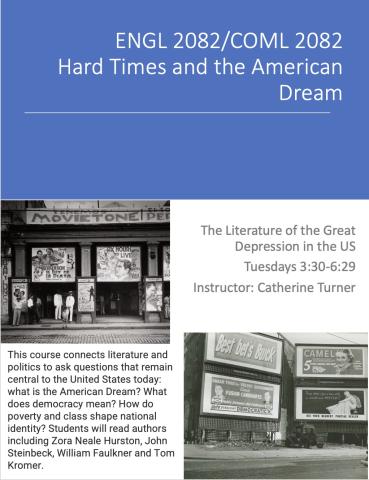Hard Times and the American Dream: The Literature of the Great Depression
The economic, social, cultural, and foreign policy crises of the 1930s provide scholars with a fruitful way to think about the relationship between art and history as well as to investigate many questions that bedevil Americans in the present day. As the U.S. continues to face a series of domestic and international crises, we continue to ask questions that would be familiar to critics, readers, and authors of the 1930s: what is the American Dream? What does democracy mean? How do poverty and class shape national identity? This course will investigate these different questions by asking, what role does art, particularly literature, play in a society undergoing a crisis? To do this, we will look at the intellectual range of works from the 1930s. We will examine politically engaged works from Langston Hughes, John Steinbeck, Muriel Rukeyser, and others; as well as seemingly apolitical modernist authors, including Wallace Stevens, Zora Neale Hurston, and William Faulkner.

 Department of English
Department of English
